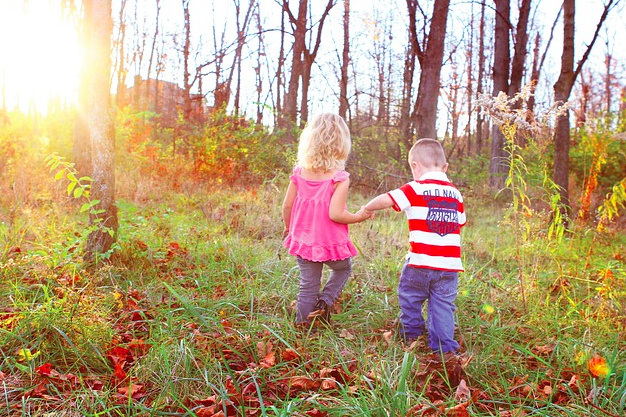Yes, it’s true, not every child takes the time to slow down and play with kids like mine (I have a child with Down syndrome and one with cerebral palsy), I’m aware of that, so when your kid plays with mine it makes me smile. I’m so thankful for your son or daughter. And I want to encourage that friendship. I think you do, too.
But can I be honest with you? I don’t want you to feel bad here, but I hope you can see what some of those statements say to me, as the parent of a child with a disability. When you say your kid is great because he/she chose to play with mine, at that very moment, your child went from seeing just another friend, to seeing kids like mine as different, as someone defined by their disability, as someone who is somehow flawed, and only an exceptional person plays with them or becomes their friend. I know that is not what you are trying to communicate, I know that, but unfortunately, it does.
You encourage your children to be friends with everyone and to embrace differences, thank you! With statements of praise about how exceptional they are for playing with my kid, you might be communicating two things to them:
1. The friendship is all about your child and how wonderful they are, the friend with the disability becomes the outward display of that greatness.
2. It teaches a mentality that separates and makes those with a disability appear as less than those without disabilities: “They are the disabled, they are different, poor them, we should help them.”
Suddenly, I feel as if your child playing with mine is more about pity rather than a real friendship.
Would you praise your child like that for playing with a typically developing kid? Probably not.
Our words are so powerful. They shape our kids, their attitudes, their perceptions.
We all want to show our kids we’re proud; we want to encourage them when we see positive traits in them. But playing with a child who has a disability should not be seen as heroic or exceptional. Be proud because they see a friend first and not the disability, and please help them to keep it that way.
You can do that by avoiding the praise and instead asking questions about their friendship, questions that sound more like, “I saw you playing with Nichole, what were the two of you playing?” “Hey, you were making Carlos laugh, were you telling him your new knock-knock jokes?” “What was your favorite thing about playing with Micah?”
Is it ever OK to bring up the differences? If appropriate, yes! Your child might even ask you why, for example, my daughter who has Down syndrome is hard to understand when she talks. Believe me, if your kids have questions, they’ll ask! But it’s very different for a parent to say, “You are so wonderful for playing with Nina because she has cerebral palsy,” as opposed to saying, “Hey buddy, did you ask Nina if she wanted to play tag again? I noticed she was really tired and having a hard time keeping up.”
Let’s teach our kids that playing with other kids, even those with a disability, is about friendship. Genuine friendship. If you want to praise your kid for being a good friend, then praise them for the same reasons you would praise them for positive interactions with any friend of any ability.
“You are the kindest person I know, you gave Charlie your last piece of candy!”
“Oh honey, you’re so wonderful, I loved that song you were singing for Tina, you made her smile and you made me smile even bigger! Will you sing that for me again?”
“You are the sweetest thing, you know? I love how you treat all your friends with kindness.”
“You have a heart of gold, I would have been mad if my friend had laughed at me, but you just laughed it off and kept on playing.”
These are the qualities we need to be cultivating in our kids.
And follow in your child’s lead: make a new friend, maybe even someone with a disability. No, you will not be an exceptional person for doing that, you will just be a little bit richer for having a new friend.
This post originally appeared on EllenStumbo.com.
Want to end the stigma around disability? Like us on Facebook.
And sign up for what we hope will be your favorite thing to read at night.

